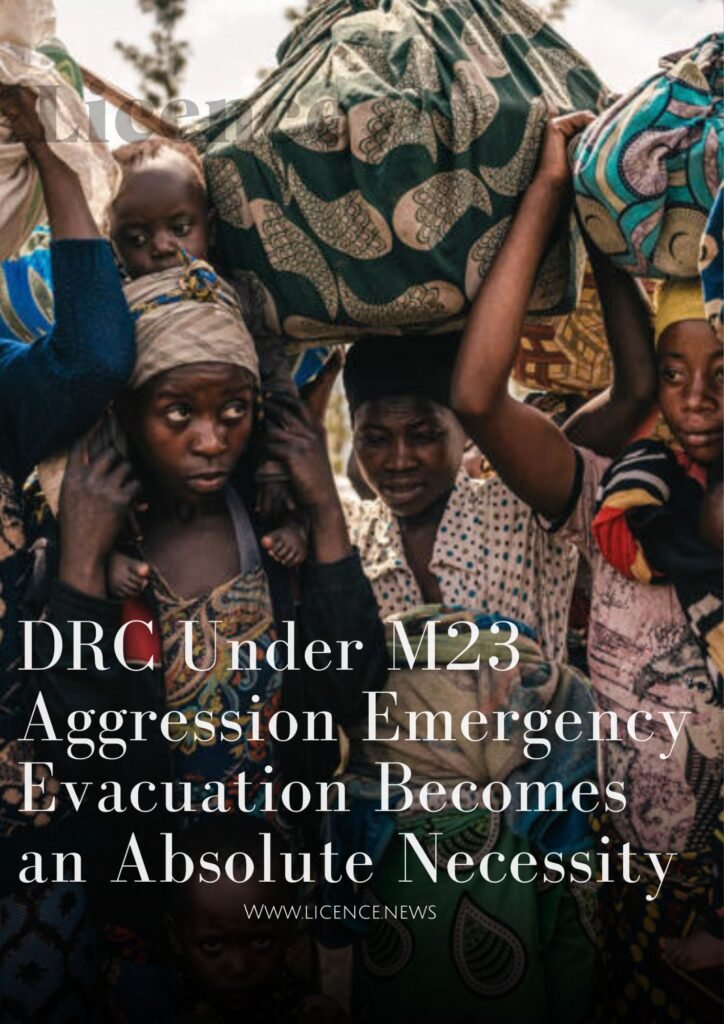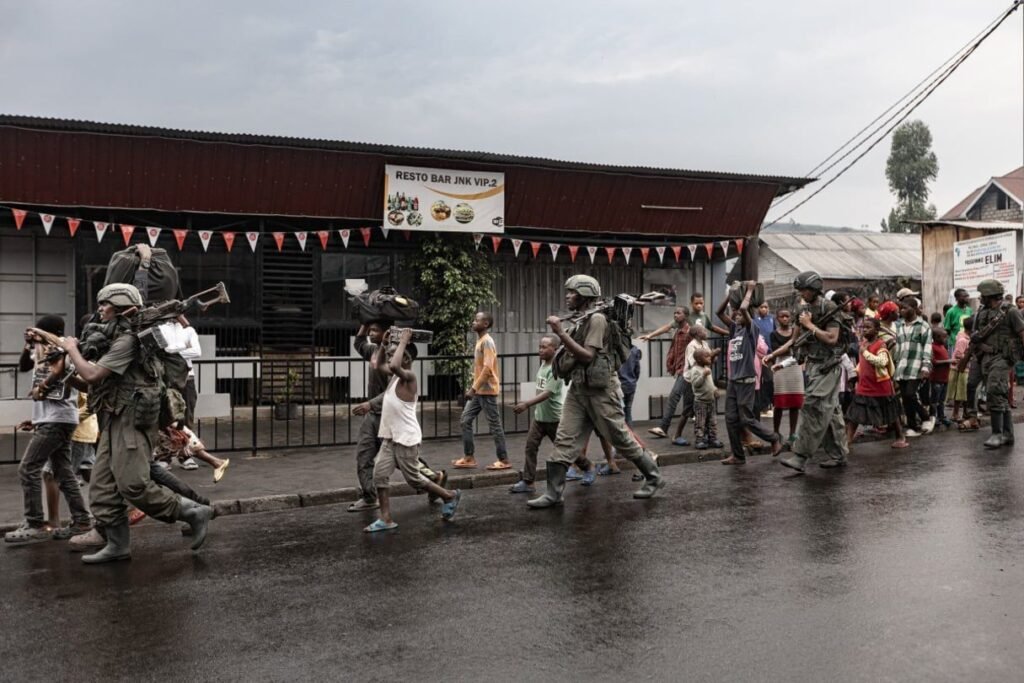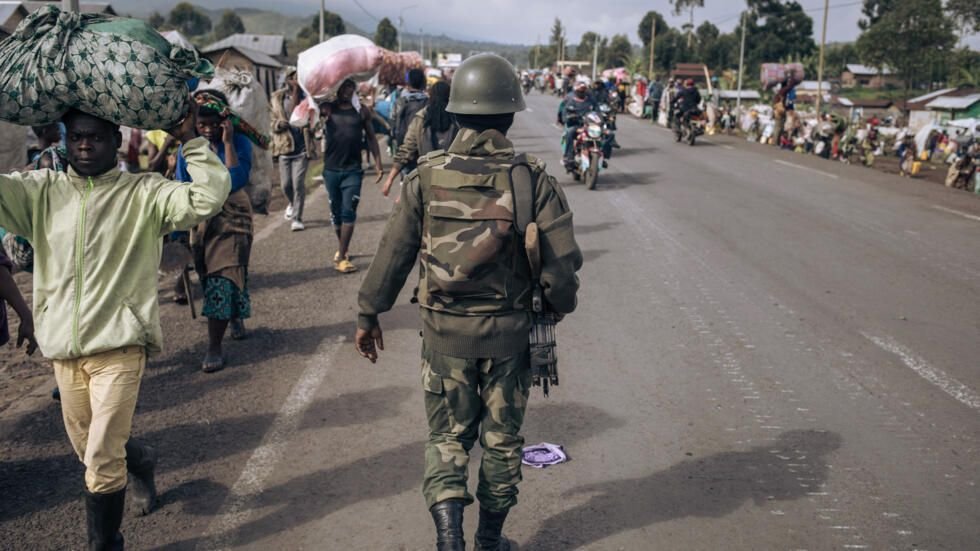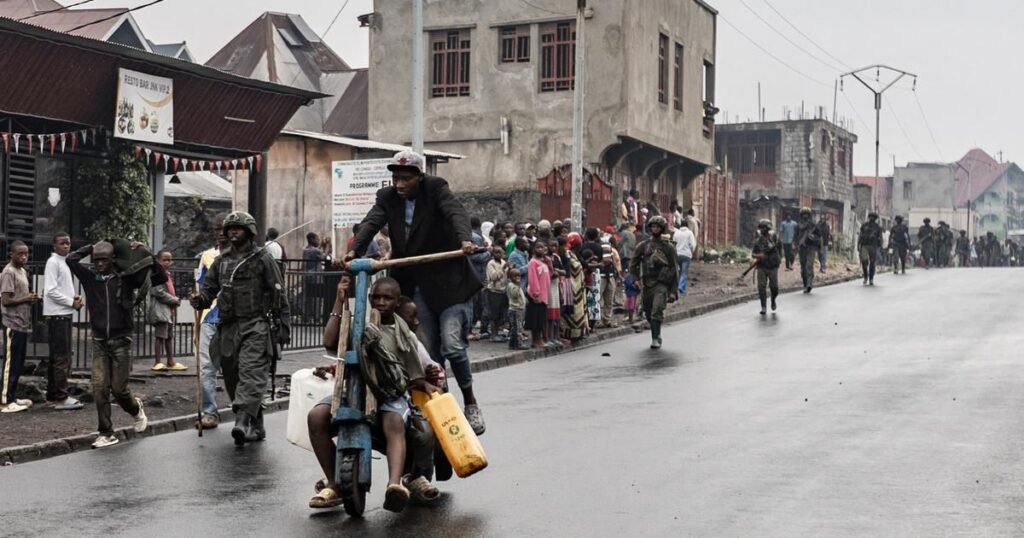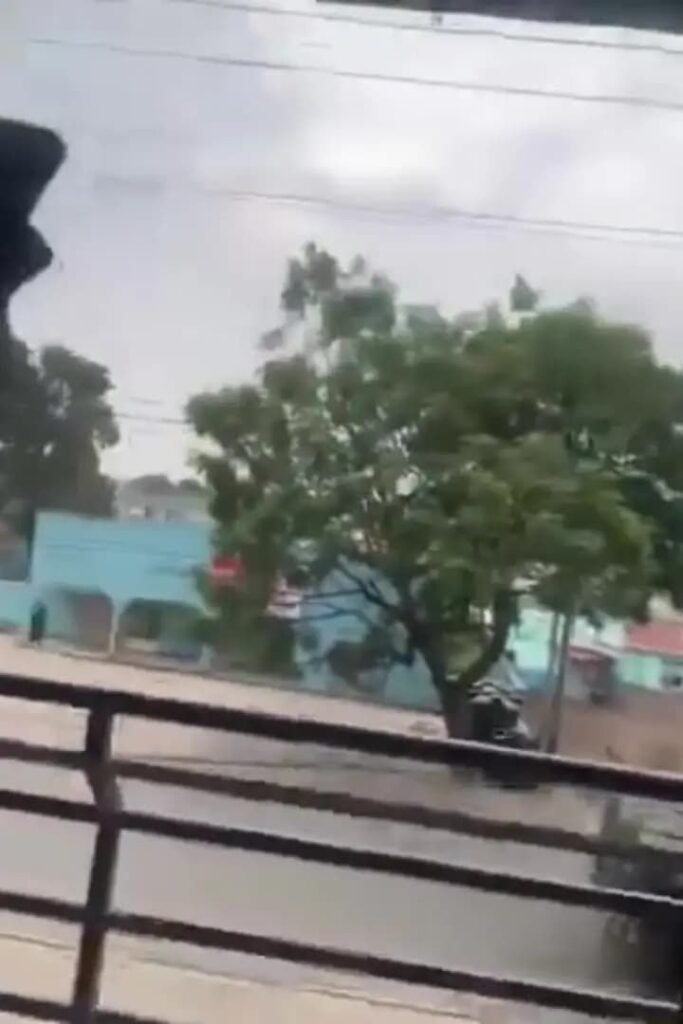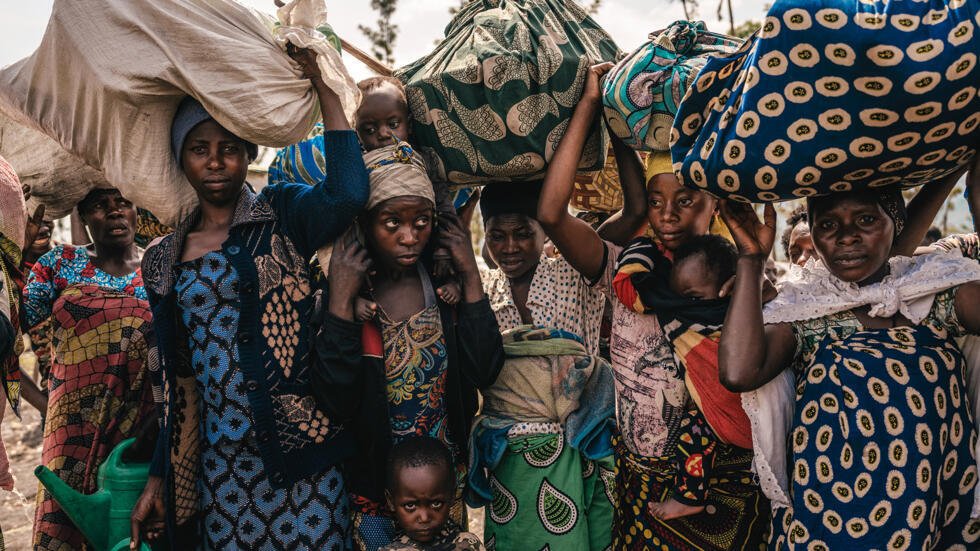The recent announcement that the Rwandan-backed rebel militia M23 has captured the city of Goma marks a troubling turn in the ongoing conflict between the Democratic Republic of Congo (DRC) and Rwanda. After nearly a decade of dormancy, the M23, which was defeated in 2012, has risen again with ambitious goals: to control the region and exploit its rich mineral resources, according to UN experts.
The return of the M23 comes amid a region already ravaged by years of violence. The role of Rwanda in this conflict is at the center of debates, as United Nations experts have reported evidence of direct support from Kigali to this rebellion, although the Rwandan government denies any direct involvement. This escalation of violence poses a threat not only to the stability of the DRC but also to that of the entire Great Lakes region, already fragile due to internal conflicts and foreign interference.
The capture of Goma, a strategic city located near the Rwandan border, has sent shockwaves throughout the civilian population. Goma, the capital of North Kivu province, is a hub for trade, humanitarian organizations, and international diplomatic missions. Its capture by the M23 presents a significant risk of destabilization in the region. Since the attack, thousands of civilians have been forced to flee their homes, worsening an already alarming humanitarian crisis.
Refugee camps in Goma have quickly filled with families fleeing the fighting. The war, which has lasted for decades, has already displaced millions of people throughout the region. According to the United Nations, more than 6 million Congolese have been displaced due to armed violence since the beginning of the conflict. Civilians fleeing the fighting, like Asifiwe Iragi Rueesha, a mother of six, have “nowhere to go.” They are often forced to seek refuge in overcrowded camps, where living conditions are harsh, healthcare services are scarce, and humanitarian resources are insufficient.
The United Nations and NGOs on the ground are calling for urgent intervention to relieve the suffering of civilians. Thousands of families need food, medical care, and shelter, but the delivery of humanitarian aid is becoming increasingly difficult due to the unstable security situation. Congolese authorities, already overwhelmed by the scale of the conflict, are asking for international assistance to address this growing crisis.
The impact of Goma’s capture extends beyond immediate human suffering. It has profound implications for the regional economy, particularly in terms of the exploitation of natural resources in the Congo. The DRC is one of the richest countries in the world in terms of minerals, and armed groups, like the M23, seek to control these resources to fund their military operations. Minerals such as cobalt, coltan, and gold are vital to the global industry, but they are also at the heart of violent conflicts that exacerbate poverty and misery in the region.
International governments, particularly those of the United States, France, and Belgium, have condemned the violence perpetrated by the M23 and called for an immediate ceasefire. However, these calls are often seen as insufficient by the Congolese population, who view the conflict as being fueled by external interests, notably Rwanda, as well as global economic powers that exploit the country’s natural resources. Experts argue that the stability of the region can only be restored through coordinated action that includes increased diplomatic pressure on regional actors and comprehensive reform of governance and security systems in the DRC.
The dilemma faced by the Congo, a nation at the heart of Africa, is complex and multifaceted. For civilians, the war is not merely a question of borders or geopolitical struggles, but a matter of daily survival. Millions of Congolese live under the constant threat of armed groups, sexual violence, forced labor, and malnutrition. In this context, the hope for lasting peace seems as distant as ever, and the international community must redouble its efforts to provide not only humanitarian aid but also long-term political solutions.
The fate of Goma and its inhabitants remains uncertain. As the M23 militia continues to advance, hopes for stability in eastern DRC seem to be fading. However, it is crucial for international actors to continue supporting peace efforts and work to end the cycle of violence that has devastated a region already scarred by decades of conflict.
